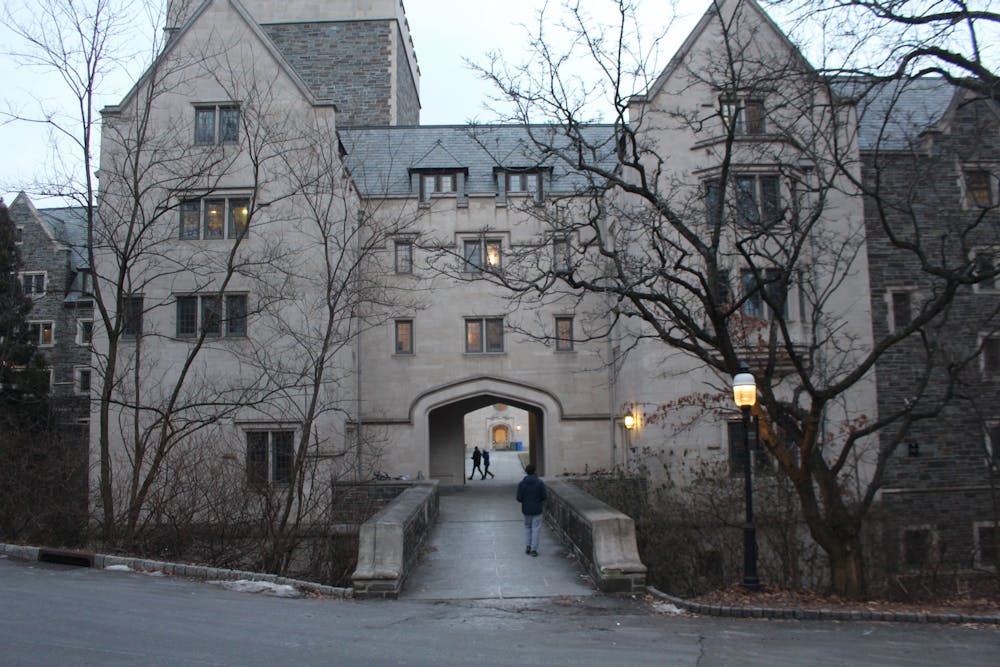What makes Princeton students proud of their residential college? For many students, the answer is nothing.
Residential colleges are supposed to be an integral part of the social experience at Princeton, the “center of undergraduate life” in Princeton’s own words. In reality, this is hardly the case because, unlike eating clubs and extracurricular groups on campus, affinity for and connection to residential colleges is never very strong. Why? Because it is difficult to find community among a randomly selected group of people.
The random nature of residential college placement is one of its greatest flaws. I have yet to meet a person who feels they belong to their residential college as much as they belong to other campus groups. This is quite concerning given that residential college placement has a significant impact on students’ campus life for at least the first two years of their time at the University.
Nearly every social group acquires its members through a naturally selective mechanism, a process by which people are filtered based on some form of common identity, usually shared interests. Eating clubs, dance groups that focus on specific styles of choreography, and student publications that focus on politics or food are a few examples of groups whose members have shared identity through their interests.
These selective processes create a strong sense of community because the members are not randomly placed in different social groups: they either choose to join or are selected based on their interests and skills. Individuals with certain interests and personalities are more inclined to join a group with similar qualities, which fosters a sense of community. For example, certain eating clubs are known for various traits, or “vibes” if you will, which encourages those of a similar characteristic to join that group, creating a strong sense of pride and community.
If eating club placement was randomized, it is likely that there would no longer be a strong sense of belonging. Most social groups, whether it’s an a capella ensemble, culture/language club, or a debate society, obtain their members through shared interests, skills, and whether a particular person would be a good fit for the community. These selective admission processes foster a sense of pride, belonging, and connection. Residential colleges are void of these sentiments because of their random placement system.
The solution to this problem is to place students in residential colleges using an intentional approach focused on similar characteristics. Students should be drawn into residential colleges based on combinations of their qualities and traits. Matriculated students could be sorted into their respective residential colleges via a system that would be informed by the information given to the University through their college applications. Alternatively, a short quiz that identifies characteristics could be given to admitted students and then used in the residential college placement process.
Some raise the concern that if residential college placement was based on qualities that students hold, some may hold biases and unfair assumptions about others according to their assigned residential college. This is a valid concern given that certain eating clubs often carry certain connotations, which result in people holding assumptions about others in those clubs. But a non-randomized approach to the residential college system would not necessarily result in the same sort of biases. For one, the sheer size of each residential college class would necessitate a wide diversity of students in each college. And with a variety of perspectives and interests, the risk of group biases and prejudices would be minimized.

Some may also argue that this would foster a homogenous social environment within residential colleges and prevent people of different personalities from interacting with one other. This is hardly a concern given that underclassmen have access to all five dining halls and common rooms, and often choose a location to dine or socialize with people they meet from class, extracurriculars, or other social settings. There is no need to be concerned about a negative effect on cross-socializing between residential colleges. There are countless other opportunities for students to interact among each other.
Many students don’t have an answer to the question of why they’re proud of their residential college. This is unsurprising given that it is difficult to be proud of a group you didn’t opt to be in. We’re proud to be Princeton students because we were selected and we chose to attend this prestigious institution. If Princeton wishes to integrate residential colleges as a vital part of the social experience at Princeton, they should seek solutions that improve group identity and social connection in the residential colleges.
Prince Takano is a junior from Los Angeles, California majoring in Politics. He can be reached via email at takano@princeton.edu.









